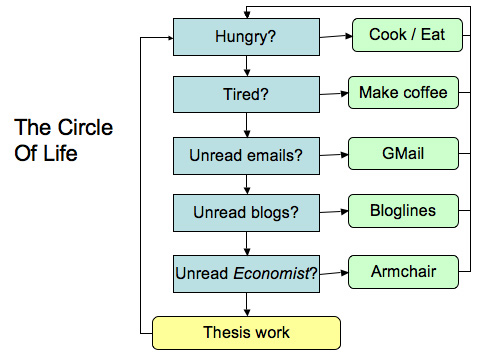By the end of this month, I am to submit the second chapter of my thesis. On “problem identification and investigation” it will detail the scientific processes that led to the Stockholm Convention and the Kyoto Protocol. Largely because of the sheer scale of the latter effort, it is a more difficult thing to pin down, especially in a reasonably concise way. If someone knows of an article or chapter that provides a neat scientific history of the climate change debate, UNFCCC, and Kyoto, I would appreciate being pointed in that direction.
On the theoretical side, the chapter will examine the ways in which phenomena in the world are categorized as ‘problems’ or not. I am also going to examine the role of existing bureaucratic structures in determining if and how scientific research in undertaken. There, the contrast between the American and Canadian approaches to dealing with POPs should be illustrative.
About 7,000 words long, this chapter will be one of the three pillars upon which the thesis as a whole will succeed or fail. As such, I am understandably anxious to do as good a job on it as can be managed, given the limitations on how much I can actually read and remember. My biggest source of anxiety remains the thought that I haven’t done enough research to speak authoritatively on the subject. Finishing the Litfin and Bernstein books is thus the first order of business, for the next few days. To that end, I should resume my ‘peripatetic and caffeinated’ reading strategy.

